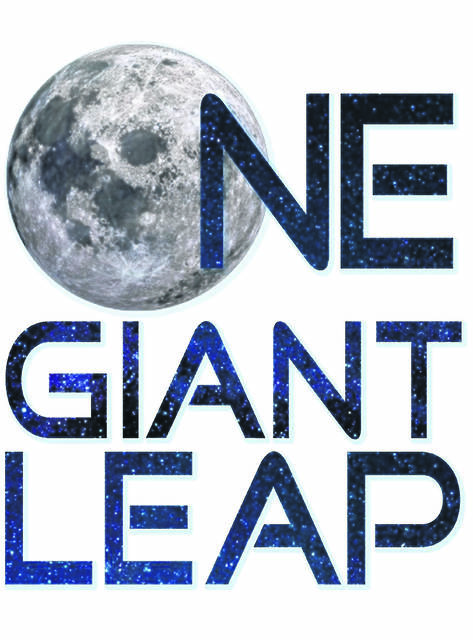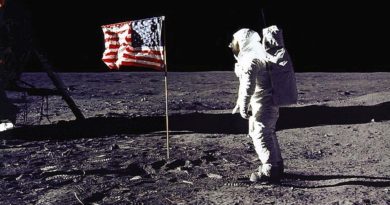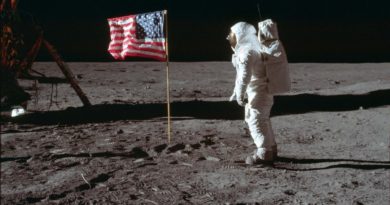Why the moon landing ‘hoax’ conspiracy persists
WAPAKONETA — It started as a fringe conspiracy. It’s now often regarded a joke. So why do some Americans continue to believe the Apollo 11 moon landing was a hoax?
“It’s so easily debunked,” said Richard Fienberg, a press officer for the American Astronomical Society who has been rebutting moon landing conspiracy theories since they surfaced 40 years ago. “And 40 years later people are still repeating it.”
Fienberg believes waning public trust in government and experts fueled the theory, which developed shortly after the Watergate and Pentagon Papers scandals surfaced in the 1970s.
“You suddenly had a crisis in which the population realized we cannot trust the government to tell us the truth,” Fienberg explained. “It persists because the situation has only gotten worse. Who trusts the government? Who trusts experts? Science is being disrespected and ignored.”
The conspiracy theory was popularized in the mid-1970s by Bill Kaysing, a former technical writer for Rocketdyne who claimed NASA and the Defense Intelligence Agency faked the moon landing in his self-published booklet “We Never Went to the Moon.”
It’s unclear how many Americans today believe the moon landing was a hoax. A 2001 Gallup survey found just 6% of adults believe the moon landing never happened.
But the proliferation of disinformation and conspiracies online poses a new challenge for scientists and historians.
As Fienberg put it: “Now any fringe theory can be amplified with nothing more than a single tweet.”
That appears to be happening as a new generation of internet personalities flirt with old conspiracies.
Take popular YouTube personality Shane Dawson, whose six-minute musings on the “MOON LANDING CONSPIRACY THEORY” has garnered more than 7 million views since it was posted in 2016.
Dawson appears both earnest and ironic, telling viewers the moon landing was staged on a movie set so America could win the race to the moon before warning it’s “just a theory,” and encouraging his followers to “let me know down in the comments if you believe it was fake or not.”
YouTube has started attaching disclaimers to videos like Dawson’s which question the veracity of the moon landing, directing viewers to an Encyclopedia Britannica entry on the Apollo 11 mission.
Whether disclaimers will be enough to direct viewers to reputable sources of information is unknown.
“I worry that people are only paying attention to the news that they like and therefore they don’t get exposed to broader points of view,” Fienberg said. “What I worry is that what I would consider to be the facts in a reality-based perspective is not even being heard by many people anymore, because they’re living in this alternate universe online … our realities are divergent.
“Does it really make sense that for 50 years thousands of people have kept silent about this when most scandals erupt within a few years?” Fienberg asked. “There’s no way that 400,000 scientists and engineers and others could possibly have kept their mouths shut for 50 years.”
.neFileBlock { margin-bottom: 20px;
}
.neFileBlock p { margin: 0px 0px 0px 0px;
}
.neFileBlock .neFile { border-bottom: 1px dotted #aaa; padding-bottom: 5px; padding-top: 10px;
}
.neFileBlock .neCaption { font-size: 85%;
}

Reach Mackenzi Klemann at 567-242-0456.
*** This article has been archived for your research. The original version from LimaOhio.com can be found here ***


